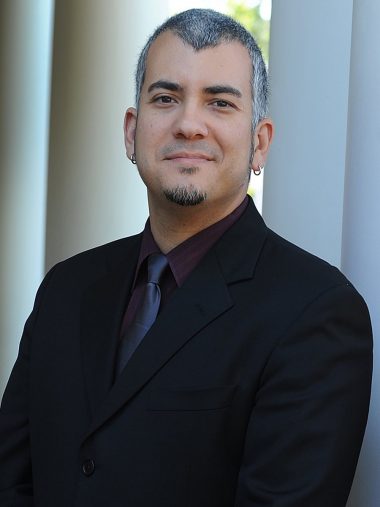The National Endowment for the Humanities has awarded assistant professor Michael Pregill a $6,000 summer stipend to research medieval manuscripts preserved in Russia that may shed new light on the relationships between the Jewish and Muslim communities of the Mediterranean and Near East in the Middle Ages.

Pregill, Distinguished Emerging Scholar in Religious Studies, has deferred the research until summer 2012 because of existing teaching and scholarly commitments. The award will ultimately complement a $3,000 faculty research and development grant from the university, as well as a $1,000 supplementary award from the Provost’s Office.
The texts of the Firkovich Collection of the National Library of Russia in St. Petersburg are the objects of Pregill’s interest. The collection has generally been underemployed by scholars, Pregill wrote in his stipend proposal, and the specific material he proposes to examine has never been published or discussed in the relevant scholarly literature.
One reason for that limited discussion was access. Until the collapse of the Soviet Union, it was difficult for Western scholars to view the collection, which originated in the mid 19th century when Avraham Firkovich appears to have been one of the first Europeans to visit a trove of manuscripts found in the storehouse or “Geniza” of an ancient synagogue in Old Cairo, Egypt.
Jews and Muslims for the most part co-existed peacefully in the lands of the Islamic empire during the Middle Ages. “The point of this research is to show how this material reflects the proximity of these traditions and their ongoing processes of communication and exchange,” Pregill said.
The research will be incorporated into a monograph currently in progress, The Living Calf of Sinai: Polemic, Idolatry, and “Influence” in Judeo-Islamic Tradition, an expansion and revision of Pregill’s doctoral dissertation.
Nationwide, less than 10 percent of all applicants for the summer stipend received funding from the NEH.
Pregill is the second faculty member in as many years to receive the NEH award. In 2010, the organization awarded associate professor Charles Irons in the Department of History and Geography a similar amount to examine how white and black Southerners interacted in church after the Civil War, and why some congregations stayed integrated for years while others split almost instantly along racial lines.
“This award has gone toward funding archival research in religious studies two years in a row,” Pregill said. “It points to the interconnections between religious studies and history, but also demonstrates the overall significance of interdisciplinary research in the university and the humanities in general.”
Pregill received his bachelor’s degree in religion with a concentration in Middle Eastern languages and cultures from Columbia University. He went on to specialize in Hebrew Bible and Jewish Studies for his master’s degree at Harvard Divinity School, and returned to Columbia to complete a doctorate in religion with a concentration in Islam.
He has taught at Columbia University, Hofstra University and New York University. Pregill was the recipient of a New York University College of Arts and Sciences Outstanding Teaching Award in 2007. At Elon, Pregill was appointed as Distinguished Emerging Scholar in Religious Studies, which recognizes a junior faculty member who has potential for a distinguished academic career in religious studies.


